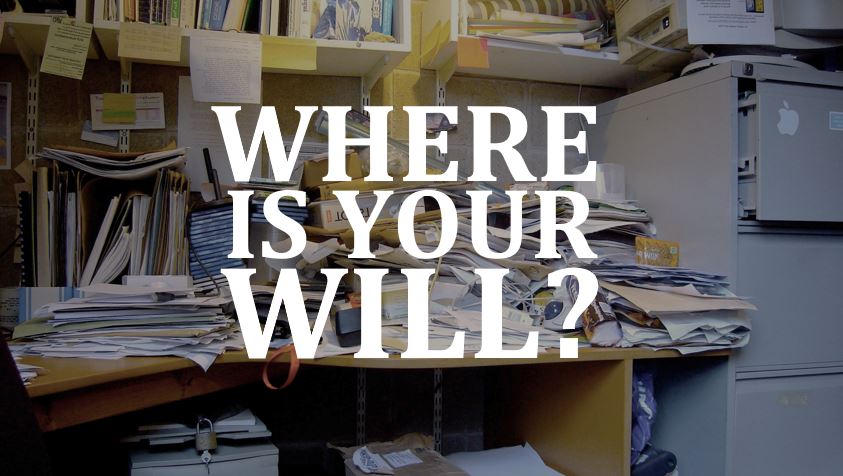Preparing estate documents is one thing. Accessing them is another.
Last Monday morning I got a call from an old friend in Vancouver. “My mother’s in the hospital and they don’t expect her to regain consciousness,” he said. “I need to find her Will and the Power of Attorney paperwork she did with her lawyer out here last year, but the lawyer says he doesn’t have it. What should I do?”
The short answer is: You and your siblings are going to have to do a thorough search of your mother’s home in between visits to the hospital. You’re going to need the originals of those documents sooner rather than later. The hospital may let you make decisions for your mother as next-of-kin. But if there are disputes, or if your mother dies, you’re going to need the originals of the Estate documents in order to probate the Will.
Where the heck are the originals?
Unfortunately, my friend’s problem isn’t unusual: Many people think they’ve done the responsible thing by having a lawyer properly prepare Power of Attorney and Estate documents (and it is good to do them, because dying intestate can trigger a whole lot of problems). But that’s not quite enough. If the documents leave the lawyer’s office with the client then they are shoved in a drawer somewhere and never thought of again, they’re setting themselves up for problems later.
If you’re over 40 and your parents are still alive, ask yourself this question: If my parents died right now, would I know where to find their Wills or Power of Attorney? If they had an accident and I suddenly had to take over their finances, would I know where to find the power of attorney documents that would allow me to do that?
Wills and estates are really a three-step process
A good estate lawyer’s role doesn’t end when you sign the paperwork. Our office has a three-step process:
STEP 1: Clients meet with me so I can explain what they need to know in order for me to receive proper instructions. We can discuss estate distribution, powers of attorney, determine whether financial arrangements such as trusts need to be established, etc. I receive instructions to prepare their Wills and powers of attorney. Meetings can be in person or virtual.
STEP 2: Having had sufficient time to review their instructions and draft the documents, I meet again with clients to sign their estate documents: The Will, the POA for Personal Care and the POA for Property. The originals of these documents are stored safely with SullivanLaw, while clients leave with copies and a POA for Personal Care.
STEP 3: To obtain or access the originals, the client or representative (in case of a death, the executor, and the case of a power of attorney, the attorney) contacts me. I have quick access to the original documents and sufficient authority to get them into the proper hands. In most cases this is simply part of the process and doesn’t cost the client or the Estate any kind of additional fee unless and until we are instructed to do more than return the originals.
“But I thought lawyers always had originals…”
Many lawyers think of estate documents as transactional: The lawyer prepares the documents, the client pays the bill, and that’s that. The (sort of secret) truth is that lawyers don’t make a lot of money preparing Wills, so it’s not a priority for many. Some lawyers simply don’t store originals and they don’t expect to hear from family members when a client dies or becomes incapacitated.
We think things are a lot easier when you can think of your lawyer as a trusted advisor or resource who you can call when things get tough. Storing those important documents is a service we are proud and happy to offer.
Would your family know where to find your original Will if something should happen to you?


